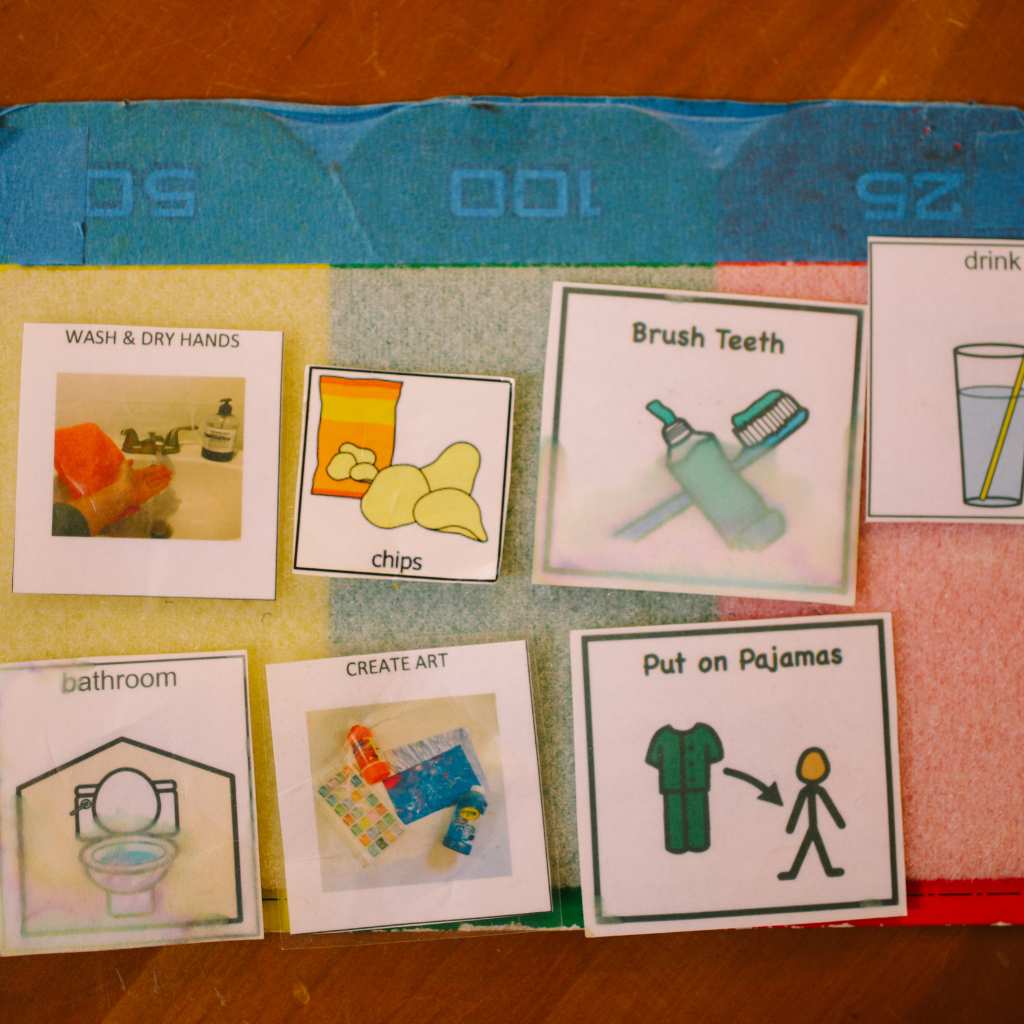Table of Contents
How can I help my kid on the spectrum with school anxiety?
Who doesn’t find it challenging to resume the routine of work, university, or school after a holiday break? This feeling is a common struggle for most people, and it is no different for individuals with Autism Spectrum Disorder (ASD) who experience back-to-school anxiety due to the disruption of routine and the more relaxed environment they enjoyed during the summer vacation.
Although many children with autism are in programs designed to address their ASD difficulties, the structured education provided by schools remains crucial. The predictability and consistency of school routines can be beneficial for children with autism, helping them develop social skills, academic knowledge, and coping mechanisms. However, the transition from the less structured summer period to the regimented school year can be a significant source of stress.
For parents, the challenge begins with the transition out of the school routine at the start of summer. Adjusting their children to a different set of activities and schedules can be demanding. When the new school year approaches, the task becomes reversing this adjustment and preparing their children to return to the structured school environment. This cyclical change can be taxing, requiring careful planning and support to ensure a smooth transition.
At ABA Centers of Tennessee, we support neurodiverse families in Brentwood, Hendersonville, Nashville, and Madison who are looking for strategies to make the back-to-school transition a smooth transition without as many surprises and challenges for their children.
Understanding Back-to-School Anxiety in Autism

Individuals with autism often experience other co-occurring conditions, with anxiety being one of the most common. Clinical Child and Family Psychology reports that around 40% of individuals with autism also experience anxiety.
So, why does anxiety occur in school or during the return to classes? Children with autism often experience heightened sensitivity to changes in routine and environment, making the transition back to school particularly challenging. The unfamiliarity and unpredictability of new academic demands, social interactions, and sensory stimuli can trigger significant anxiety.
Difficulties in communication and social skills can lead to feelings of isolation and misunderstanding from peers and teachers, exacerbating their anxiety. This anxiety is often intensified during the return to school after breaks, as the abrupt shift from a familiar home environment to a structured school setting can be overwhelming.
Moreover, the pressure to perform academically and meet the expectations of teachers and parents can be a significant source of stress. Children with autism might also experience anxiety due to a fear of making mistakes or not meeting their high standards, often linked to a strong need for predictability and routine.
Autism Research investigated anxiety in children with autism by directly asking them about their experiences rather than relying on caregiver reports. Using a specialized self-report tool (ASC-ASD-C) and additional questions, researchers gathered data from 113 children aged 6-14. The children most frequently reported anxiety related to uncertainty and performance. Almost all children (96.5%) experienced anxiety in at least one setting (home, school, or community), and 40.7% felt anxious in all three. Many children felt their anxiety was often unnoticed, especially at school (50%) and in the community (60%).
8 Tips to Support Back-to-School Transition in Autism
You’ve done the initial work to get your child used to the summer break, accustom him to waking up later, and even enroll him in special activities such as summer camp. Now, how do you make the switch back? At ABA Centers of Tennessee, we give you the following tips:
1. Establish a Routine Early
Start establishing a school routine a few weeks before the school year begins. Gradually adjust bedtimes, wake-up times, and meal schedules to align with the school day. Consistency helps children with autism feel more secure and less anxious about the upcoming changes.
2. Create a Visual Schedule
Visual schedules can be incredibly beneficial for children with autism. Use pictures, symbols, or written words to outline the daily routine, including school start and end times, subjects, breaks, and any extracurricular activities. This visual aid helps children understand what to expect and reduces anxiety about the unknown. Download and customize your own visual schedule here.

3. Visit the School Ahead of Time
Arrange a visit to the school before the first day. This first visit can include meeting teachers, exploring the classroom, and locating essential areas like restrooms and the cafeteria. Familiarizing the child with the environment can alleviate fears and build confidence.
4. Practice Social Skills
Social interactions can be a significant source of stress for children with autism. Role-playing different social scenarios, such as greeting classmates, asking for help, or joining a group activity, can help children develop the skills they need to navigate social situations more comfortably.
5. Use Social Stories
Social stories are short narratives that describe specific social situations and appropriate responses. You can tailor it to address particular aspects of the school day, such as lunchtime, playground rules, or classroom behavior.
6. Prepare Sensory Tools
Due to sensory sensitivities, the school environment can be overwhelming for children with autism. Prepare a sensory toolkit that includes items like noise-canceling headphones, fidget toys, or stress balls. Discuss with the child’s teacher the best ways to integrate these tools into the classroom setting to help the child manage sensory overload. You can check sensory toys for autism on Amazon.
7. Communicate with Teachers
Establish open communication with your child’s teachers and support staff. Share information about your child’s strengths, challenges, and practical strategies that have worked in the past.
8. Seek Professional Support
If the transition proves particularly challenging, consider seeking support from professionals. They can provide additional strategies and interventions to help your child cope with the transition.
Prepare Your Kid to Return to Classes with ABA Therapy
Many times, knowing your child’s needs and preferences is not enough to help them adapt to new routines or learn new skills, such as starting a new school year or socializing with new classmates. Children with autism often face unique challenges when it comes to changes in routine, which can result in heightened anxiety and stress.
Applied Behavior Analysis (ABA) therapy can be a powerful tool in helping children with autism navigate these challenges. ABA therapy uses the principles of behaviorism to teach positive behaviors through positive reinforcement while addressing more challenging behaviors commonly seen in autism. ABA therapy is highly individualized, focusing on each child’s unique needs, strengths, and behaviors.

This approach is particularly beneficial for preparing children for the return to school. Here’s how:
- Creating Predictable Routines: ABA therapists can help establish and reinforce daily routines that mirror the school environment. This preparation can make the transition smoother by providing a sense of predictability and security.
- Social Skills Training: Social interactions can be a significant source of anxiety for children with autism. ABA therapy can include social skills training, helping children learn how to interact with peers, understand social cues, and develop friendships.
- Behavior Management: ABA therapists work on reducing challenging behaviors that might interfere with learning and socializing. This process can include teaching coping strategies for anxiety, frustration, and other emotions that arise during school activities.
- Parent Training and Support: ABA therapy often involves training parents to implement strategies at home, ensuring consistency and reinforcing positive behaviors. This support can be invaluable as parents prepare their children for the school year.
ABA Centers of Pennsylvania Helps You Grow
Parents and caregivers of children with autism face significant responsibilities and challenges in addressing their children’s needs. Raising a child with autism requires a deep understanding of their unique needs, the intricacies of autism, and the additional support systems that can make their future more manageable to navigate. Ensuring that they have the necessary tools to thrive is crucial.
At ABA Centers of Tennessee, we have helped hundreds of families in Brentwood, Hendersonville, Nashville, and Madison better navigate autism and empower children with autism by leveraging their strengths and identifying areas for improvement.
If you’re looking for personalized support to help your child with autism thrive, call us at (844) 423-9483 or contact us through our website. Whether taking the ABA sessions in our centers or your home, we ensure your child receives the best possible care in an environment that suits their needs. Reach out to us to start your journey towards a brighter future for your child.






